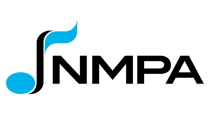This website uses cookies so that we can provide you with the best user experience possible. Cookie information is stored in your browser and performs functions such as recognising you when you return to our website and helping our team to understand which sections of the website you find most interesting and useful.
Business News Digital Legal Top Stories
US publishers plan crackdown on unlicensed lyric sites
By Chris Cooke | Published on Tuesday 12 November 2013
The lyrical side of online piracy – that is to say the publication of lyrics without licence – has been an issue ever since the web first started to gain momentum in the latter part of the 1990s, even if the music publishing sector’s counter activity hasn’t been as high profile as the record industry’s assault on the unlicensed distribution of digital audio files.
But the problem persists, or so says the US National Music Publishers’ Association, which said in a press briefing yesterday that it was issuing takedown notices against the 50 “worst offenders” in illegal lyric publishing, implying that legal action could follow against any sites that refused to remove unlicensed lyrical content or do a deal with the publishers. Most of those sites targeted carry advertising alongside the lyrics they publish without permission.
The 50 sites on the NMPA’s target list have been identified via research conducted by Camper Van Beethoven frontman and The Trichordist blogger David Lowery. NMPA boss David Israelite told reporters yesterday: “These lyric sites have ignored the law and profited from the songwriters’ creative works, and the NMPA will not allow this to continue. This is not a campaign against personal blogs, fan sites or the many websites that provide lyrics legally. NMPA is targeting 50 sites that engage in blatant illegal behaviour, which significantly impacts songwriters’ ability to make a living”.
If the NMPA chooses to go legal over any of the targeted websites, the publishing trade body will cite successful action against unlicensed lyric sites in the past. Though the website at the top of Lowery’s list of worst offenders in lyric piracy will likely put up a fight, because Rap Genius is an online community that encourages users to annotate and comment on the lyrics of famous tracks to provide background and context to the words. The venture, set up in 2009, scored $15 million in investment from a tech venture capital firm last year.
The New York Times quotes an email from Rap Genius co-founder Ilan Zechory responding to yesterday’s NMPA statement, in which he says: “The lyrics sites the NMPA refers to simply display song lyrics, while Rap Genius has crowdsourced annotations that give context to all the lyrics line by line, and tens of thousands of verified annotations directly from writers and performers. These layers of context and meaning transform a static, flat lyric page into an interactive, vibrant art experience created by a community of volunteer scholars”.
Zechory added that he “can’t wait to have a conversation with [the NMPA] about how all writers can participate in and benefit from the Rap Genius knowledge project”.
Of course however admirable the Rap Genius venture may be, the music publishers will likely argue that the service still needs a licence to publish lyrics. Whether Rap Genius could cry “fair use” to circumvent the need to pay money to the publishers remains to be seen, their site does arguably constitute “critical analysis” (an element of fair use), though lyrics can also be accessed in full without criticism or context, which might void that exemption.
Either way, the NMPA’s latest lyric site crackdown will be interesting to watch, and the case against Rap Genius even more so.






